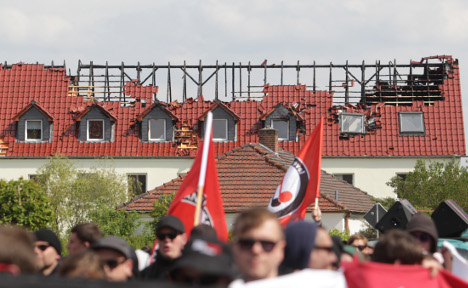The figures presented by Interior Minister Thomas de Maizière in Berlin showed that 203 attacks took place against refugee homes in 2014, up from 58 in 2013. Far right groups have been behind the vast majority (175) of these attacks.
Last year also saw a significant increase in anti-Semitic crime. The number of reported incidents rose to 1,596, a 25 percent increase on 2013.
“This development is worrying and must be stopped,” said De Maizière. “Germany is a peaceful and open country. We want to live here in an atmosphere of peace and mutual respect.”
The ministry's report came a day after German representatives admitted to a United Nations committee on racial discrimination that the country still had a long way to go to stamp out racism.
Politically motivated crime in general is on the rise, the figures showed. More than 3,300 cases of politically motivated violence were reported in 2014, a record since figures for this crime were first collected in 2001.
The total number of crimes reported to the police rose in 2014 to more than 6 million cases, a two percent increase on 2013.
The number of burglaries reported meanwhile hit a 16-year high. More than 150,000 incidents were reported to police in 2014, a 1.8 percent increase on the previous year.
“I am greatly concerned by the rise in crime,” said the interior minister. “Particularly worrying is the rise in burglary, but also crimes of deception and narcotics criminality which have once again increased.
But there was some good news in the statistics.
Sexual abuse of children fell back 2.4 percent.
Car theft and violent crime also decreased.



 Please whitelist us to continue reading.
Please whitelist us to continue reading.